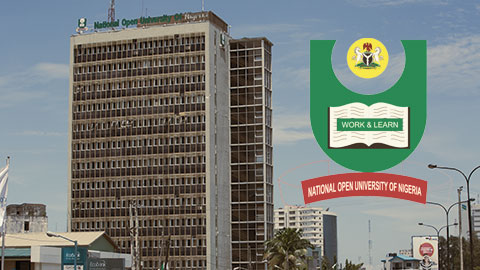Important Notice to all Mass Communication Students

ALL Mass Communication Students should take note that the Department of Mass Communication of (NOUN), has commenced the process of producing a Training Newspaper and Magazine for the students. The newspaper is called NOUNSCOPE while the magazine is called NOUNDIGEST. Practical participation in these publications is COMPULSORY for those offering MAC312 – Newspaper Production and MAC421: Advanced Newspaper/Magazine Production. The two courses are now “NON EXAMINABLE,” hence students will be graded based on their practical participation. Consequently, the following instructions are to be noted and heeded accordingly by all students and urgently, too:
- All relevant students are to fully participate in the process of gathering materials, including sourcing for Advertisements for the publications;
- They are to submit a minimum of a full-page Write-up, well written and punctuated.
- MAC312: Newspaper production
- MAC421: Advanced Newspaper/Magazine Production
Above courses are compulsory for students offering them; however, other students wishing to contribute to the publications are free to do so, especially those offering the following courses:
- UNDERGRADUATE COURSES
MAC117: Writing for the Mass Media
MAC223: Magazine & Feature Article Writing
MAC225: News Writing and Reporting
MAC313: Critical Writing & Reviewing
MAC322: Editorial Writing
MAC323: Photo-Journalism - POSTGRADUATE COURSES
JLS711: Introduction to Journalism
JLS721: News Reporting and Writing
JLS722: Publication Layout and Design
JLS724: Feature Writing
JLS823: News Reporting and Writing
JLS825: Editorial Writing
Furthermore, students are to note that the write-ups/materials to be published can be any of the following:
- Straight news
- Opinion article
- Feature article
- Personality interview
- News analysis
- Photo-news properly captioned
- Advertorials
- Advertisements
- Special projects
- Other forms of write-ups
Note: Students may have either taken or presently are taking or would take one or more of the above listed courses, and are therefore conversant/should be, should become conversant with them.
Editorial materials are to be submitted as an attachment as follows:
- In word format only
- 12-Point Size
- Times New Roman
- 1.5 line spacing
- Block paragraphing
SEND TO: hodmasscommunication@noun.edu.ng
Timeline: All materials are to be submitted within seven (7) days of this notice, in the following order:
- Your name (surname first, then other names),
- Matric number
- Course code
- Course title.
- Title of the story
In addition to the above, you should also put the title of your write-up in the Subject Column of your email. Please note that your full practical participation is mandatory for you to earn your mark towards the completion of your programme in the University. You can help to further publicise this information to your other colleagues.
For enquiries/clarifications, send mail to: hodmasscommunication@noun.edu.ng
How and Where to Source for News and Information
A. What type of news/information should be focused?
The key materials required from students to contribute to the publication of the training newspaper and magazine are as follows:
- Straight news items – this is the record of current happenings or events as they occur, emphasizing the 5Ws and an H.
- News analysis
- Feature stories
- Opinion articles
- Interviews
- Photo news of important events with proper caption of the faces that appear and to indicate the 5Ws and H, where necessary
- Cartoon strips
- Special projects/supplements on companies or organisations that want to enjoy wider/special exposure
- Advertorials
Spot advertisements like product or service advertisements, vacancy announcements, etc. Any of these materials will be considered and adjudged okey after proper consideration and grading according to the departmental grading formular.
B. Who can be the sources of the news?
- Centre Director
- Bulletin boards/Notice boards
- Some important documents containing quotable information that can be used to develop articles or features
- Students’ Counselors
- Fellow students of high societal standing
- Fellow students of showing higher intellectual output
- Community leaders who may also be students or just an important stakeholder
- Religious leader either who may be fellow student or just a stakeholder
- Traditional leader who may be a fellow student or a stakeholder/community leader
- Senior public servant/educationist within the community
C. What to focus during face-to-face/telephone interviews
If you are seeking to interview anybody, as you’re a guide, the areas to focus are:
- Their career
- Their family
- Their achievement
- Their likes and dislikes
- Their challenges
- Their regrets
- Their future aspirations

